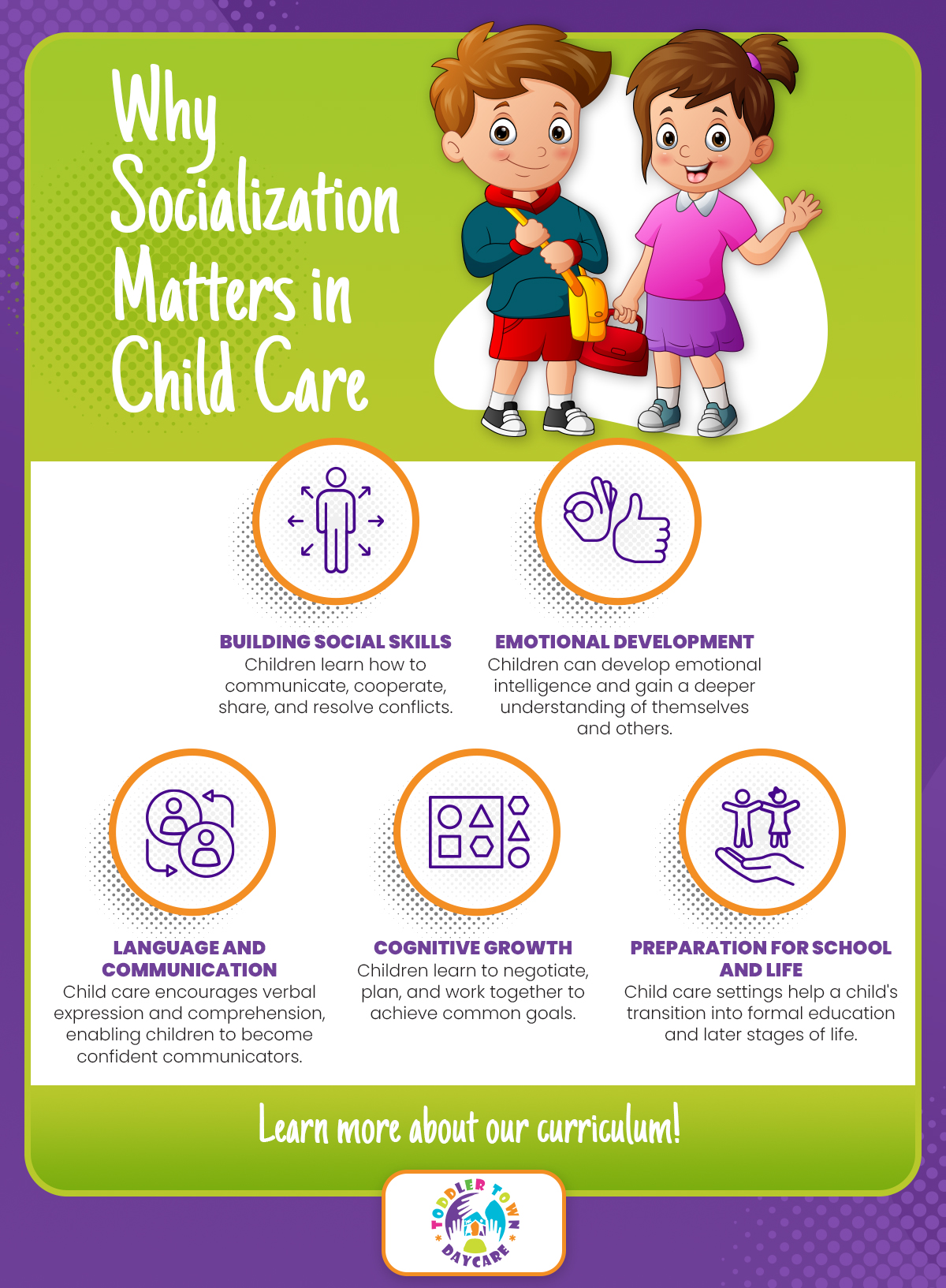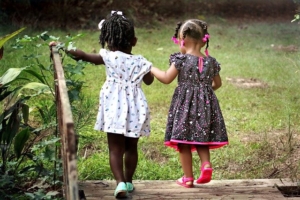One of the primary concerns of parents struggling to decide which daycare is right for them, is whether or not the daycare setting provides adequate socialization for children. While finding adequate child care is a must for many families, others must weigh the benefits of daycare vs. staying home.
The arguments on all sides are passionate and deeply personal. Is the home the best place to socialize small children? What are the effects of daycare on child development?
Once upon a time, parenting magazines and mom-gurus didn’t question the benefits of sending a child to daycare. Times have changed, and parents increasingly question the importance of daycare in child development. However, early childhood education, and daycare in particular, can be a positive influence on the socialization of a child. The following are the top 7 ways child care centers can have a positive effect on early childhood socialization.

1. Learning to be part of a team.

The child care center experience helps to teach children how to be a part of a team. Taking turns, sharing, and manners are all modeled and encouraged in the classroom. Children learn how to be good friends and what the boundaries of appropriate behaviors are in varied situations.
2. Learning to solve problem.
Building problem solving and reasoning skills are part of the curriculum in any high-quality child care facility. Children learn not to give up when confronting difficulties, and develop strategies for solving life’s problems, whether academic or social.
3. Trained staff.
Most parents have no idea what the early signs of learning disorders are. Others are reluctant to accept that their child may be facing cognitive or intellectual challenges. The trained staff in child care centers know how to spot signs of intellectual disability and behavioral challenges early. With early intervention children can be set on a productive path and pursue their greatness.
4. Get ready for school.
Child care centers help children ease into a school-like routine with daily schedules that include circle time and designated outdoor play time. A well-equipped and well-staffed child care facility not only mimics a school-like environment, but actively encourages age appropriate learning and learning through play.
5. Language skills development.
Exposure to a wide variety of words in the early childhood years has lasting effects on a child’s developing mind. Communicating with a wide range of people of varying ages helps your child to master verbal skills. Child care facilities often incorporate a language arts curriculum into their schedule. Storytime, dramatic play, and even conversing with other children help your child develop the skills to express themselves verbally. Children who don’t have adequate verbal skills often become frustrated and exhibit a variety of anti-social behaviors as a result.
6. Respect for authority.
While respect begins in the home, learning to respect authority other than one’s parents is a skill which many young children struggle with. Children quickly learn that respect for authority has real world consequences. Caring for toys, following instructions, sitting quietly while listening to a story or watching a television show all require children to listen to authority and comply. They learn that if the authority is ignored or defied, the consequences are broken toys and provoking the ire of classmates who are unable to enjoy the activity.
7. Easing separation and forging new bonds.

Children who attend child care, even part time, learn to function independently of their parents for an extended period. They learn, necessarily, that parents can be trusted to return. Leaving is not the same as being abandoned. They learn that there are routines and people other than their parents who can be trusted and counted on to meet their needs. Not only that, but they learn to develop strong peer relationships. And at the end of the day, they meet their parents with wonderful experiences and stories to share with their parents as well as “presents” to give. In short, their world expands exponentially, and that eases the transition into school.
Quality child care is a challenge to find, as each parent must decide which facilities and programs best fit their needs. Some parents will not consider a child care facility that doesn’t allow them to monitor the classroom from their computer. Children with special needs would need a facility with trained medical professionals on staff. And many others need flexible hours to meet their demanding schedules.
Regardless of what your own child care needs are, you can be sure that the child care experience will have a positive effect on socialization for children.


